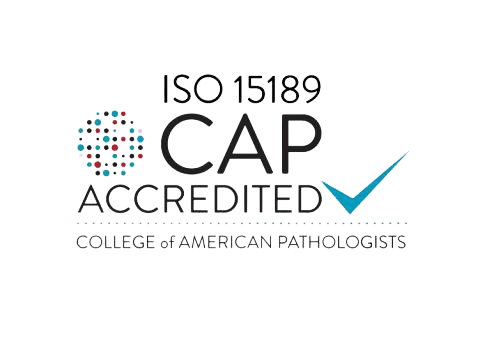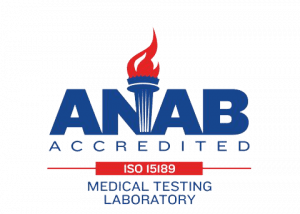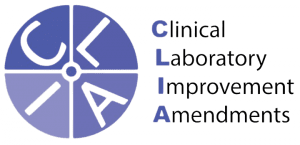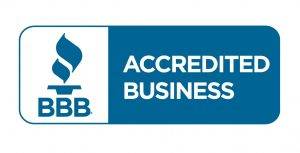People are rushing to learn more about their family histories, health concerns, and genetic history, which has led to a surge in DNA testing. Genetic code yields significant personal insights that few other data bits can match. However, businesses can now harvest that valuable data through easy direct-to-consumer (DTC) services due to the arrival of home DNA test kits. But can results from home DNA kits pass scientific evaluation? Let’s examine the features and restrictions of well-known kits to assist you in deciding whether DNA testing from the comfort of your home offers trustworthy results.
For the price of a cheek swab, the DTC DNA industry, which is growing rapidly, offers enticing insights into your genetic origins. These reasonably priced home DNA kits with facilities like ChoiceDNA alternatives undoubtedly provide fascinating details about your long-lost relatives or the likelihood of developing a genetic illness. But since they don’t follow strict clinical guidelines, we need to carefully consider how reliable their results are before making judgments that might change someone’s life based just on a cheek swab.
How Accurate Are Home DNA Tests?
Home DNA kit testing often examines tiny DNA fragments known as genetic markers, which provide more information about ancestry and familial relationships than health characteristics. They scan important focused variables rather than sequencing your full genome, which consists of a billion elements in your complete DNA sequence. Testing businesses cross-reference your markers with databases to determine the likely ethnic background mix you have or to identify potential relationships within their user base.
DNA sequencing need not coincide with the analytic requirements of Home DNA kits as the kits’ primary focus is on ancestry and family relationships rather than exact health correlations. Nevertheless, all respectable businesses state that their accuracy rates are more than 99% because of highly developed genotyping technology and large reference populations. Mistakes are primarily the result of human error, such as misplacing sample tubes or having little approach in their reference DNA libraries. Today’s widely available DNA test kits yield trustworthy findings for broad ethnic insights and likely cousin ties and distant relatives.
Are Home DNA Tests Accurate?
DNA test kits are quite popular since they are inexpensive and easily accessible. However, compared to simple, innovative ideas, how trustworthy are their conclusions for directing medical decisions or solving important family mysteries? The key to finding the answer is comprehending the important distinctions between ancestry and health screening.
When it comes to wellness testing, home DNA kit tests typically don’t have the comprehensive correlation data needed to provide a firm diagnosis or estimate the risk of an illness based just on genetics. Rather, they concentrate on family trees and ethnic origins. Therefore, health outcomes that go beyond simple bearers of inherited traits warrant further evaluation in a medical environment. Because DNA Test kits have access to large, superior comparison databases, they can accurately identify blood relations and provide ethnic backgrounds for ancestry across brands. The accuracy rate is 99% if the sample collection process is followed correctly.
How Accurate Are Home DNA Kits?
How Reliable Are DIY DNA Kits?
Direct access does have accuracy limitations, even if it makes DNA insights that were previously only available in clinics accessible to everyone. When it comes to Home DNA kits, how much can you trust smart marketing against sound the discipline of science? This explanation may be guided by knowing the important questions.
Do Home DNA tests accurately identify potential health risks?
Without validation against large-scale clinical correlation data, risk identification is inaccurate. However, insights into ethnicity may provide a general indication of prospective predispositions that scientists should investigate further.
Can family trees be correctly traced using home DNA kits?
Without integrating genetic and conventional family history research, they provide limited verifiability when connecting you with specific distant ancestors but reliably affirm close familial links.
Are At-Home Paternity Tests Accurate?
Convenient paternity testing outside of clinical settings is becoming more and more in demand due to questions about familial identification. In situations when legal processes or mental peace are at stake, are DNA test kit choices reliable in establishing biological fathers?
Certainly, discreet, reasonably priced paternity confirmation is made possible by the capacity to gather and send samples for examination directly to customers without the need for a distributor or medium. But as appropriate collecting methods are necessary to ensure validity, at-home paternity tests also raise questions about accuracy. In the absence of observed DNA sampling, there is a chance that specimens might be inadvertently or purposely switched. Furthermore, stringent, official procedures for confirming paternity based on the likelihood of DNA matching are typically required by legal prescriptions.
How Accurate Are Home Paternity DNA Tests?
Many want the insights that come from identifying biological parents outside of the legal sphere or requiring official testing processes. Fortunately, reliable home DNA tests now allow families to address persistent doubts by providing precise, albeit unofficial, paternity probability indicators.
However, Home DNA kits’ paternity DNA testing cannot result in legally admissible judgments or formally establish parental rights and duties because no intermediary physically controls sample collection. If DNA extraction is not formally witnessed under laboratory standards, there is a chance that specimens might be accidentally or purposely switched or corrupted.
Still, firms ensure that submitted samples match users biometrically to prevent swapping. As a result, paternity DNA tests performed today are highly reliable in determining genetic ties. Therefore, even without official legal acknowledgement, credible probability on the possibility of paternity does develop.
Unlock the Secrets of Your DNA with Our Testing Services

Are Swab DNA Tests Accurate?
Several Home DNA kits, like the ChoiceDNA kit, use a brief inner-cheek swab instead of blood samples to make self-collection easier. However, does accuracy suffer when swabbing oneself rather than taking a professional blood sample? Enough cell populations are present in saliva samples to perform important ancestry and family relationship genotyping. Additionally, because oral cells vary structurally from blood cells, they provide longer-term DNA protection.
To obtain impacted cell mutations, a deep blood tissue sample is necessary for some specialized medical testing, such as tumour genomic profiling to target cancer therapies. Nevertheless, widely used tests that evaluate more general hereditary inclinations, as opposed to tissue-specific genomes, typically examine markers abundant in oral DNA.
Conclusion
Owing to easy-to-use home DNA kits that collect swabs on your own, genetic testing may now provide personal insights into family histories that were previously unknown unless you did a lot of research on your lineage. Further discussions about health and heritage should be guided by more detailed medical and ancestral connection reports rather than being completely dependent on a small number of isolated test findings to make significant life decisions. The widespread availability of genetic data that was previously hidden from the public is unquestionably a step in the right direction toward enhancing our common history.



















